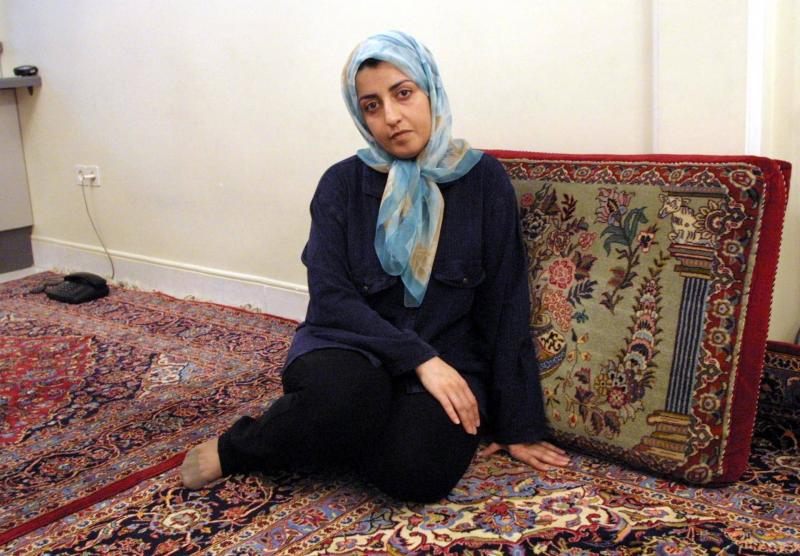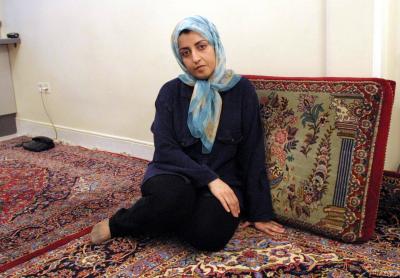Iranian human rights activist Nargis Mohammadi, who won the Nobel Peace Prize, has sacrificed her freedom for most of her adult life and faces many more years behind bars, but she vows to continue challenging the religious regime in Tehran. Nargis became the second Iranian woman to receive the award after her teacher and mentor, lawyer Shirin Ebadi, who won it for her human rights activism in 2003. In the preface to Nargis's book titled "White Torture," released in 2020, which is a collection of interviews with female prisoners, Ebadi wrote, "Despite the shackles she is burdened with, Nargis still roars like a lion. That is why the regime wants to crush her."
Human rights organizations have stated that the most recent conviction against Nargis by Iranian authorities in 2022 means she could spend about 12 years in prison. The 51-year-old woman has cycled in and out of prison for most of her adult life. Nargis, a prisoner from the Iranian Azerbaijani minority, was born in Zanjan, northern Iran, in 1972, to a family from this minority, and began her activism as a student studying physics at a university in Qazvin. She noted in her book that she was arrested at least twice during her studies and continued her activism despite repeated imprisonments. She wrote, "On November 16, 2021, I was arrested for the twelfth time and sentenced to solitary confinement for the fourth time in my life."
Nargis is currently held in Tehran's notorious Evin Prison, which has housed thousands of political opponents since the 1979 Iranian Revolution that toppled the Shah and established the religious regime. Evin Prison was also a site for the imprisonment and torture of opponents of the Shah. Her husband, Taghi Rahmani, who has also been imprisoned in the past due to his activism, and their twin children, Ali and Kiana, who are 16 years old, live in exile in France. Rahmani stated that he has not seen his wife for 15 years and that their children have not seen their mother for seven years.
Nargis spoke about following the countrywide unrest from prison last year after the death of Mahsa Amini (22 years old) while in the custody of the morality police. Nargis was awarded the Nobel Prize just days after 16-year-old Arminita Geravund was hospitalized after losing consciousness, following an encounter with police in Tehran's subway for not wearing a hijab. Human rights organizations claim that Geravund lost consciousness due to this encounter, which Tehran denies. The awarding committee stated that its decision honors those who supported last year's protests and called for Nargis's release.
The World Organization Against Torture, a coalition of non-governmental human rights organizations, stated that Nargis is accused of spreading "propaganda against the regime," anti-national security activities, and civil disobedience, among other charges. Nargis confirms that she will never stop fighting for democracy and equality.
In her book, she mentions that the Iranian activist suffers from nerve and lung problems and has experienced beatings and mistreatment while imprisoned. She has gone on hunger strikes and staged sit-ins several times during her incarceration. She adds in her book that she faces prison sentences of up to 30 years under current and past rulings. Nargis is the 19th woman to receive the award given over the past 122 years and the first since Filipino Maria Ressa won it in 2021 jointly with Russian Dmitry Muratov.
After her victory, Nargis declared that she will never stop fighting for democracy and equality, even if it means remaining in prison. The New York Times quoted her statement: "I will continue to fight against the ongoing discrimination, tyranny, and repression directed at women by the oppressive religious government until women are free."




